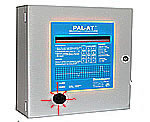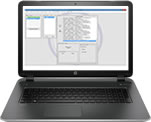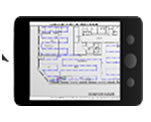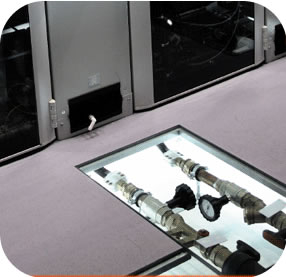GLS email alerts - How it works
Leak detected
PAL-AT® detects a leak on its sensor string and goes into alarm. It then takes a new map of the sensor string with the alarm and goes on monitoring for further leaks. It will alarm again if there is another leak or the first one gets worse.

Alarm is raised on Palcom
PALCOM® 10 is notified by PAL-AT® that a leak has occurred. The message includes information detailing which cable has detected the leak and how far along that cable the leak is. A GLS CAD drawing shows the leak detection installation on the screen. A flashing icon identifies the location of a problem on a sensor cable or probe.

Leak location is emailed to support staff
PALCOM® 10 has a list of who should be notified in a leak situation. It composes an email that contains details of where the leak is, including copies of the GLS floorplan diagrams highlighting the location. This message is then sent to the support staff on call.

Support staff go straight to problem
The support staff receive the email from PALCOM® 10. They now have all the information required to be able to go straight to the location of the leak. They didn't need to go to the panel or refer to printed floorplans. PAL-AT® and PALCOM® 10 handled all that and sent the required information directly to their smart phones.


